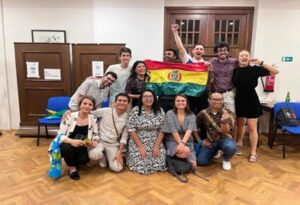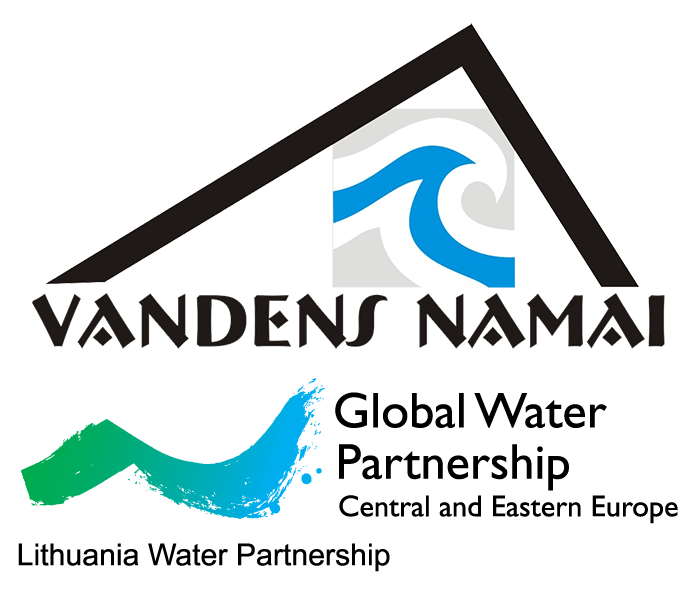On the 2nd-8th of July 2023 Laurynas Mackevičius, a bachelor student at the Department of Hydrology and Climatology of the Institute of Geosciences of Vilnius University, took part in the GWP Summer School “Healthy and Resilient Catchments – From Science to Action”. Student’s report on the summer school:
“On July 2-8, I visited Prague, Czech Republic. However, tourism in this country remained only in the background. The main objective was to take part in a project organised by Optain and the Global Water Partnership, a summer school to improve and deepen knowledge on sustainable water management methods and techniques in the face of climate change, floods and increasingly frequent droughts.
First days in the summer school
Around 20 young people gathered in the Czech capital, ready to gain and acquire new and useful knowledge in a short week. The week started with getting to know and interacting with each participant of the summer school. By communicating and sharing our experiences, we managed to get to know many participants closely during the day. Team building activities contributed significantly to this. Only thanks to them, already on the first day, I managed to get to know my colleagues quite well, with whom I would later work in separate groups. Being well acquainted with the surrounding people, it was possible to get down to work: listen to informative lectures, perform interesting and challenging tasks and apply all knowledge in the final group work presented.
But first things first. I fell into a very friendly and dynamic group of girls from Belgium, France, Bolivia and guys from the Philippines and Sri Lanka. Such a culturally diverse group produced good results both in terms of communication and in terms of completing the tasks. The main task of our group was to develop, within one week, an effective and inexpensive proposal, a solution to reduce and mitigate the effects of droughts and floods in a small farming town.
At first glance, this task seemed quite difficult for everyone in the group, but we had a whole week to do it. The main data was gathered during an interesting field trip, where we met local farmers who shared the challenges they face in farming in the region and the different subtleties of farming. The trip included a visit to the main water reservoir, a reservoir that supplies water to the whole region and is of great importance to the local people, both in terms of living and farming.
 A local farmer talks about his crops
A local farmer talks about his crops
The rest of the week was devoted to learning how to interpret and analyse data using programming and other very useful applications such as SWAP, QGIS or other environmental modelling applications. For me personally, this was one of the most interesting parts of this summer school, when working in a group, I had to use software that is very useful in practice to solve and analyse various problems related to the water resources management process. Once the characteristics of the study area were mastered and the basic data analysed, the final presentation and proposal did not seem so threatening.
As the summer school brought together many different people from different cultures, a cultural party was organised and was one of the most fun activities of the camp. Everyone had to present their country of origin. It could be food, sweets, dancing or drinks. During the party, I had the chance to dance dances popular in Kosovo, Iran, Bolivia or Indonesia, taste the traditional Hungarian drink Palinka, and try a variety of delicacies from other countries. Finally, the party was rounded off with a disco and refreshments.
At the Party of Different Cultures
It was a really interesting and exciting week, with so much to hear, learn and share. But the best part of this summer school was getting to know and work with experts from different disciplines and cultures from around the world. I was able to make friendly and strong contacts, gain very valuable experience and most importantly broaden my horizons.”
Last day of summer school




